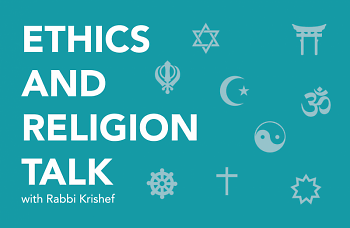Father Kevin Niehoff, O.P., a Dominican priest who serves as Judicial Vicar, Diocese of Grand Rapids, responds:
“This question is complex. What is not known is if the author is referring to euthanasia or the decision to ‘discontinue medical procedures that are burdensome, dangerous, extraordinary, or disproportionate to the expected outcome’ (Catechism of the Catholic Church, p. 550)?
“Euthanasia is a positive act of the will to cause the death of one’s self or another. I could never support an individual choosing to willfully end his/her life. The willful act of bringing about the death of one’s self or another is never morally acceptable
“I have and will continue to support discontinuing medical procedures that do not provide for a reasonable quality of life. Let us not forget that there is the realm of palliative care today that is developing that relieves the suffering of those who are gravely ill.
“Let me close with a personal experience. I was a young priest visiting a Dominican Sister dying of cancer during the last days of her life. She was overall comfortable yet mostly unresponsive. However, one day while visiting her with some of her Sisters present in the hospital room, I told her she did not need to hang on and asked her why she was still here. Her response, ‘Kevin, my work is not done yet!’ My advice is that life has value to its natural end!”
Rev. Ray Lanning, a retired minister of the Reformed Presbyterian Church of North America, responds:
“With no context, it is difficult to answer your question. Presbyterianism takes it cue from the Bible and affirms the value of life over death: ‘I, the LORD thy God, have set before you life and death, blessing and cursing: therefore choose thou life, that both thou and thy seed may live’ (Deuteronomy 30:19). It is foolish to cling to this life at all costs (Luke 9:23-25), but the work of faith is to hope in the Lord while life lasts, as Job did: ‘All the days of my appointed time will I wait, till my change come’ (Job 14:14). Job hoped or ‘waited’ for better days to come, if not in this life, then afterwards: ‘I know that my Redeemer liveth … and though, after my skin worms destroy this body, yet in my flesh shall I see God’ (Job 19:25-27).
A Christian who wants to ‘let go of living’ may be in the grip of deep spiritual or emotional depression. Faith is weak and hope has failed. He or she needs to be reminded of the promises of God for this life (Hebrews 13:5, 6). Or, like the apostle Paul, he or she may be affirming faith in the promise of eternal life in the presence of Christ: ‘To me to live is Christ, and to die is gain’ (Philippians 1:21). Paul says he has a ‘desire to depart, and to be with Christ.’ But he also knows that he lives and serves at the Lord’s pleasure, and is content to leave the matter in His hands, as we all must do (Psalm 31:14, 15).
My response:
My tradition values science and medicine and instructs us to take care of our health, based on an understanding of Deuteronomy 4:9, “Take utmost care of yourself and guard yourself carefully.” We understand that God “owns” our bodies which are loaned, so to speak, to us to use during our lifetimes. When we get sick, it is a mitzvah, obligation, to seek medical advice and treatment, if necessary.
However, we also understand that to engage in a struggle against death is ultimately not a fight we can win. If we suffer from a serious illness, the obligation to seek treatment is balanced by our physical and emotional ability to withstand the treatment. And if we are diagnosed with a terminal illness, we have the autonomy to decide, along with our doctors, when continued treatment is no longer beneficial.
If a member of my congregation has given up on life and there are signs of clinical depression, I counsel them to engage a professional therapist who can prescribe appropriate medication, if necessary. If a person with an incurable illness wants to let go of life, I cannot counsel them to actively end their life, because my tradition believes that suicide is a violation of the commandment against murder. However, I do counsel them to engage with a palliative care doctor or a hospice organization who can give them medical care and pain relief consistent with their goal of letting their life end naturally.
Look for additional responses in next week’s column.
This column answers questions of Ethics and Religion by submitting them to a multi-faith panel of spiritual leaders in the Grand Rapids area. We’d love to hear about the ordinary ethical questions that come up in the course of your day as well as any questions of religion that you’ve wondered about. Tell us how you resolved an ethical dilemma and see how members of the Ethics and Religion Talk panel would have handled the same situation. Please send your questions to [email protected].
The Rapidian, a program of the 501(c)3 nonprofit Community Media Center, relies on the community’s support to help cover the cost of training reporters and publishing content.
We need your help.
If each of our readers and content creators who values this community platform help support its creation and maintenance, The Rapidian can continue to educate and facilitate a conversation around issues for years to come.
Please support The Rapidian and make a contribution today.
